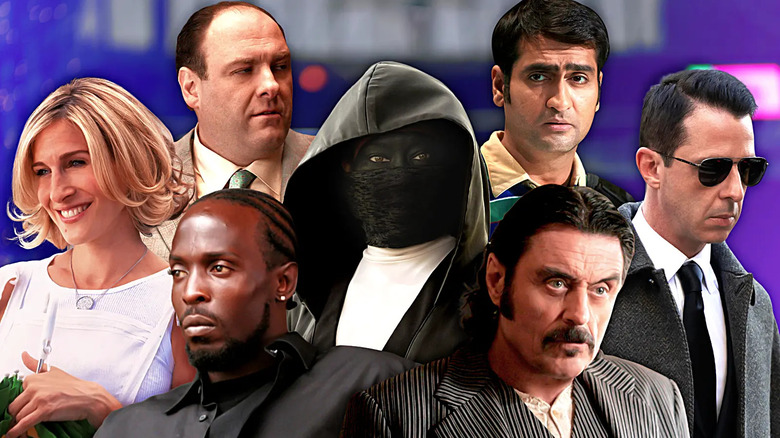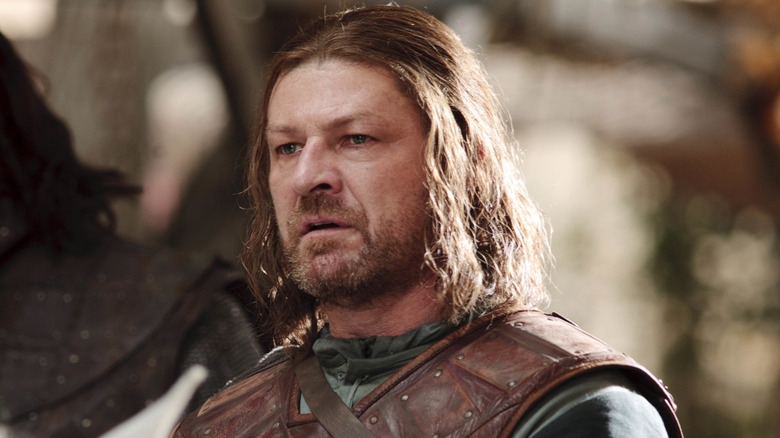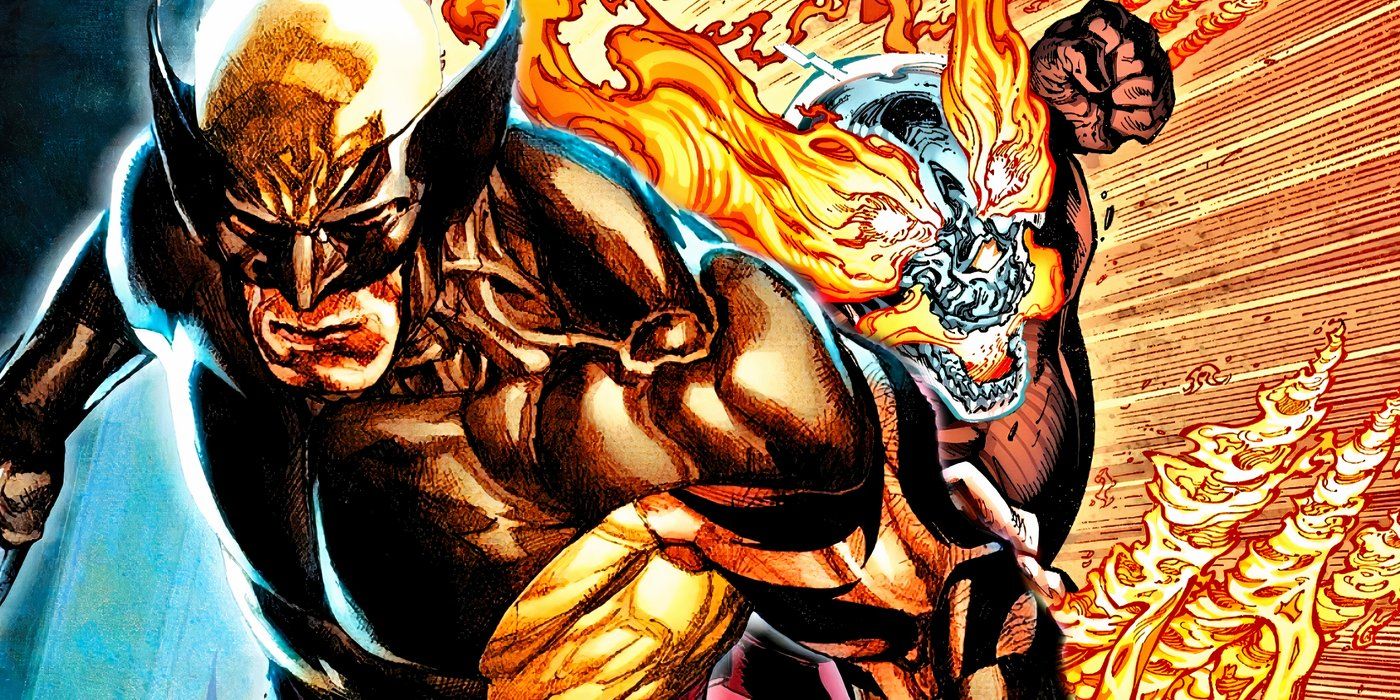
Static Media
We largely have HBO to thank for all the incredible, genuinely profound work we enjoy in the television medium today. Founded in 1972 as a premium destination for movies and major events, it is now synonymous with its indelible contributions to the art of serialized storytelling — and we've gathered and ranked several of the network's best shows ever.
Take note that this list doesn't represent the entirety of the network's greatest achievements. We made the difficult decision to omit talk shows and news programs ("Last Week Tonight with John Oliver"), documentaries ("The Jinx"), Max Originals ("Peacemaker"), and those series that lean a little too far toward reality ("How To with John Wilson). What remained were 20 of the greatest stories ever told, together defining in large part the standard we expect from television in the 21st century.
Euphoria
Though it earned a major share of its buzz due to its almost antagonistically controversial and provocative subject matter, there's no denying that "Euphoria" pushes the boundaries of its audience and the medium of television with an equally audacious verve. Sam Levinson's somber teen drama follows an ensemble cast of struggling Californian high schoolers, anchored by an Emmy Award-winning performance from Zendaya.
While introducing us to many of tomorrow's stars (including Jacob Elordi, Hunter Schafer, Sydney Sweeney, and the late Angus Cloud), the series delves unflinchingly into complex themes of trauma, sexual and gender identity, and drug and alcohol abuse. As of writing, "Euphoria" is still awaiting a follow-up to its bold, deep, and relentless second season — the result of which may see the series deserving a higher place on this list.
If you or anyone you know needs help with addiction issues, help is available. Visit the Substance Abuse and Mental Health Services Administration website or contact SAMHSA's National Helpline at 1-800-662-HELP (4357).
Oz
During its best seasons, "Oz" felt like a horror story, with scenes so distressing and disturbing that they could only be made more horrifying by the knowledge that real American prisons are about as nightmarish as the fictional Oswald State Correctional Facility. Created by "Homicide: Life on the Street" scribe Tom Fontana, it ran for six seasons between 1997 and 2003 and tells the story of a fictional American experimental prison. All sides of the institution are examined, from prison staff and guards to the diverse group of inmates trying to survive and, if possible, find redemption in an irredeemable environment.
The ensemble cast includes some of the most impressive actors to ever work with HBO during the late '90s and early 2000s, including Harold Perrineau, Rita Moreno, and J.K. Simmons (whose character is commonly regarded as one of the most horrible villains in television history). Like "Euphoria," "Oz" sought to push the boundaries of what was acceptable to depict on television. When it was successful, it was able to convey real-world horrors that are too often ignored.
Sex and the City
There's an argument to be made that "Sex and the City" is the most culturally important television show included on this list. For six seasons, audiences affectionately followed Carrie Bradshaw (Sarah Jessica Parker) and her friends Miranda (Cynthia Nixon), Charlotte (Kristin Davis), and Samantha (Kim Cattrall) as they experience all the hope and heartbreak New York has to offer.
Though it ended in 2004, the show has maintained its relevance thanks to several theatrically released feature films and spin-off series, including the recent Max sequel series "And Just Like That..." The original "Sex and the City" was also given to a brand new audience in 2024, thanks to a deal with Netflix.
The Leftovers
As one of the most significant television creators of the 2000s and 2010s, it should come as little surprise that Damon Lindelof is represented twice on this list. His first collaboration with HBO was "The Leftovers," an adaptation of a quasi-apocalyptic supernatural novel by writer Tom Perotta (who co-created the series with Lindelof). While among his lesser-known works, it's no less emotionally and psychologically challenging than the rest of the "Lost" co-creator's resume.
Here, Lindelof and Perotta take viewers to an alternate reality where 2% of the world's population vanished from existence without warning or trace — save for the loved ones they've left behind. Though characteristically confounding and uninterested in simple, lore-centric answers, it works as an endlessly compelling, rapturous pilgrimage through grief, faith, and the limits of emotional resilience. (Though you might need some help understanding the ending of "The Leftovers.".)
Chernobyl
Perhaps the most vital, terrifying, and relevant horror story of late 2010s television, "Chernobyl" is not the sort of historical drama you put on with a vague interest in the subject. What awaits viewers is five hours of near-perfect storytelling, beset by the unfathomable dread of the series' inescapable political and ecological implications.
Created by Craig Mazin (who returned to HBO triumphantly immediately following this series to co-develop the network's lauded adaptation of "The Last of Us"), the miniseries features a stacked cast of talent from around the globe, including Jared Harris, Stellan Skarsgård, Jessie Buckley, and a pre-"Saltburn" Barry Keoghan. Though witnessing the Soviet-era nuclear disaster in such careful, intimate detail is bound to be upsetting, there's no denying the series' sheer narrative power.
Silicon Valley
Have you ever seen a talented comedic actor kill it in a supporting or guest-starring role and wish you could see them do more? In many cases, "Silicon Valley" is that "more."
The ensemble satire about the absurd world of emerging tech features an embarrassment of skilled comics doing their best work, including Thomas Middleditch, "The Office" alum Zach Woods, a pre-Marvel-ified Kumail Nanjiani, Jimmy O. Yang, Josh Brenner, Martin Starr, and, prior to his exit, "Deadpool" star T.J. Miller. It's all at once chaotic, nihilistically hilarious, impressively light on its feet, and stands the test of time as one of the greatest television comedies of the 2010s.
Curb Your Enthusiasm
"Curb Your Enthusiasm" needs no introduction, as is certainly true for any show with a theme song so culturally ubiquitous (if one exists, that is). Over 12 seasons, Larry David wasn't just able to produce a follow-up hit that met and often surpassed what he achieved on "Seinfeld," but he also did so while completely changing his approach to making sitcoms. It's a staggering testament to his undeniable impact on the television world.
While there may be some affectionate replicators (including FX's "It's Always Sunny in Philadelphia"), there's just nothing quite as reliably giggle-inducing as "Curb." Even if its finale pulled some punches, the series astoundingly landed the plane of what was arguably HBO's most beloved comedic offering and further cemented David as a defining voice in over three decades of the American sitcom.
The Larry Sanders Show
Younger readers may be slightly confused at the inclusion of "The Larry Sanders Show" on this list, given that we explicitly disqualified talk shows. But this series is, in fact, not really a talk show at all, but a darkly comedic meta-dramedy that — while yet to enjoy the same modern cultural resurgence as "The Sopranos" or "Sex and the City" — is no less arresting three decades after its finale.
The late Garry Shandling stars as the eponymous late night personality — so convincingly that multiple networks offered him multi-million dollar contracts to fill one of their real late-night slots. He declined, instead focusing on this revolutionary and formally subversive onstage-backstage entertainment industry satire that was as brutal as it was hilarious.
The Rehearsal
Often heralded as a rare and strangely emotionally effective window into a neurodivergent world, "The Rehearsal" sees Canada's best business student (read: chaotic instigator) Nathan Fielder return to "help" more ordinary, ostensibly real people with ostensibly real problems.
While his preceding work "Nathan for You" only brushed up against the deeper implications the show held for its dubiously sincere leading man, "The Rehearsal" meets them head-on with fearless introspection and skepticism. As Nathan prepares his subjects for important life events, he allows the audience to see the extent to which social anxiety can warp a person's perception of reality.
Band of Brothers
"Band of Brothers" is the rare period war drama that manages to capture your interest even if you aren't a history buff. Set in World War II, the miniseries (created by Steven Spielberg and Tom Hanks) is inspired by the stories of real soldiers who risked and in many cases lost their lives fighting against the Axis powers.
Full of brutal moments of sacrifice and genuine heroism, it's the perfect follow-up to Spielberg and Hanks' previous collaboration "Saving Private Ryan." It also features uniquely vulnerable performances from the likes of David Schwimmer, Damien Lewis, and Neal McDonough.
Boardwalk Empire
Given the impact they had on "The Sopranos," it only made sense for Steve Buscemi and writer Terence Winter to return to HBO with their own story about organized crime and the complicated souls who get wrapped up in it. This time, they took New Jersey back to the 1920s, when liquor was outlawed and bootlegging was the name of the game.
The series often indulges in a slicker atmosphere than its predecessor, allowing for a viewing experience that somehow feels novel and familiar at the same time. Add in career-best performances from Buscemi, Kelly Macdonald, and Michael Shannon, and a pilot episode directed by Martin Scorsese, and you can understand why playing the hits went down so smoothly for the network.
Deadwood
There are surprisingly few truths in Hollywood. One of them happens to be that, if you put Timothy Olyphant in a western series, that series automatically becomes a classic. Sorry. We don't make the rules.
In all seriousness, "Deadwood" is arguably the quintessential western television show. Somehow spun out of an idea that wound up being too close to HBO's "Rome" (an honorable mention for this list), it operates perfectly in the chaotic world of gunslingers and gold thanks to a dedicated focus on theme, character, and conflict. Though it ended before its time, "Deadwood" did receive a fitting farewell in the form of a feature film finale in 2019.
Barry
Television — and certainly HBO in particular — have enjoyed a protracted obsession with angry men killing their way through life. But while other recent series struggle to mine more than blood from this overused trope, "Barry" (a black comedy about a hitman-turned-Hollywood-hopeful) disrupts expectations at every turn to tell compelling stories about anything from domestic abuse and sexism in Hollywood to accountability and the meaning of justice. And it's somehow hilarious the whole time.
Creator-slash-director-slash-producer-slash-writer-slash-star Bill Hader took the premise, delivered on it to the fullest extent of the medium, and then asked audiences if we really need any more stories about self-righteous murders. He did so while allowing the series to evolve in narrative, style, and tone, maintaining momentum and going out with a bang after four seasons.
If you or someone you know is dealing with domestic abuse, you can call the National Domestic Violence Hotline at 1−800−799−7233. You can also find more information, resources, and support at their website.
Game of Thrones

HBO
Of all the shows on this list, it was most difficult for us to decide where exactly "Game of Thrones" deserved to land. The dark fantasy drama is widely remembered for its eighth and final season, which many fans rank as the series' worst outing as well as one of the most unsatisfying farewell seasons in television history.
Putting its divisive ending aside, however, it just can't be disputed that this adaptation of George R.R. Martin's unwieldy novels is one of the most successful book adaptations of all time, culturally, commercially, and artistically. It set a new standard for blockbuster and genre television in terms of writing, acting, and direction, and will likely be remembered as one of the last shows audiences watched and reacted to live on such a large scale.
Six Feet Under
Famous in part for having arguably the best series finale of all time, "Six Feet Under" might be one of the few series on this list we could still reasonably describe as underrated. It was created by "American Beauty" scribe Alan Ball and stars Peter Krause and Michael C. Hall as brothers running a family-owned funeral home.
Surprisingly risky and consistently moving, the dramedy manages to balance day-to-day drama with larger existential themes that will have you watching through tears more often than not. If it weren't for its polarizing fourth season, it would likely deserve an even higher place among its peers.
Watchmen
Of any comic book to be adapted by Hollywood, none suffer from as large a shadow as Alan Moore's "Watchmen." The 1986 series broke new ground in the comic world, presenting characters, concepts, and ways of engaging with difficult, adult themes that entertainment executives were eager to capitalize on.
While HBO's miniseries might be included in the pile of adaptations, spin-offs, and sequels that Moore isn't a fan of, it came closer than any other project to capturing the grim yet colorful world readers have been lost in for decades. It finds creator Damon Lindelof perfectly paired with source material that allowed him to marry his apparent fascination with existential science fiction concepts to real, complicated political and social issues that remain relevant today.
VEEP
When it first premiered in 2012 at the beginning of Barack Obama's second term as president, "VEEP" felt like a parody — a funny but nightmarishly petty and chaotic answer to the polished American idealism of Aaron Sorkin's "The West Wing." Looking back a decade later, it can't help but feel as though Sorkin and the rest of the country should have heeded the series as a warning of the future.
Rather than paint a comforting picture of bipartisan, meritocratic leadership collaborating and compromising to get things done, creator Armando Iannucci broke through the canvas with a caustic, swear-filled saga about politicians driven by financial interests, interpersonal bitterness, and, above all else, their own petty desire for legacy and status. From the writing and direction to the ensemble of beleaguered Washington lanyard-lackeys, the series stripped away all the prestige and respect usually afforded to its subjects on television.
Of course, much of the success of "VEEP" is owed to leading lady Julia Louis-Dreyfus, who plays Vice President Selina Meyer. Her performance was so memorable that the series experienced a short second life when people began drawing parallels between her and Vice President Kamala Harris.
The Wire
Like "Game of Thrones," certain purists may take umbrage with our placement of "The Wire" due to what is widely considered to be the uniquely uneven quality of its five seasons. That uniqueness, however, is made by the fact that when the series was at its best, it made a strong argument for being the greatest television show ever produced. Created by Baltimore Sun journalist David Simon, it was lauded for realistically depicting both sides of the deadly Baltimore drug trade.
It takes great care in humanizing all of its uncannily realized characters, regardless of which side of the law they were on, and pulls no punches when depicting the capacity for corruption and deadly dysfunction in a laundry list of state institutions. Underneath the patina of a police procedural lies a novel-like and endlessly tragic epic that (at its best) asks viewers to look beyond the crimes themselves and instead consider what circumstances could push a person to the edges of society.
The Sopranos
The long-reigning crown jewel of HBO's back catalog deserves no place lower than this — and for many readers, nothing but the top spot is fitting of its legacy. Indeed, "The Sopranos" has been the undisputed champion of prestige television since its run from 1999 to 2007. Without Tony Soprano — the psychologically complex mafia boss at the story's heart, played with unmatched range and nuance by the late James Gandolfini — we arguably wouldn't have Walter White, Barry Berkman, Dexter Morgan, or most of the other iconic TV antiheroes who have dominated the medium ever since.
In their intricate, beautifully rendered struggles to achieve self-actualization while maintaining their financially and socially beneficial criminal activities, the characters of "The Sopranos" novelly proved to many viewers that stories are most effective when they challenge us to empathize with those we would normally dismiss with disgust. As exciting — and, often, bizarrely funny — as it is to be a silent witness to the antics of the DiMeo crime family, each episode leaves you with a notable pang of emotional disturbance than lasts long after the credits roll.
Succession
While it may be a controversial pick for the top spot, we're confident that our "number one boy." "Succession" is frankly as perfect as television can possibly get. "VEEP" alum Jesse Armstrong transformed the seemingly alien world of legacy media into a blistering, improbably hilarious work of art that somehow straddles the line between Shakespearean tragicomedy and cutting-edge satire. The brilliance of the series isn't just that it takes audiences inside the thrilling boardroom knife fights and billion-dollar power plays — it's that it contextualizes them effortlessly within the immediately accessible character-driven drama.
Hostile takeovers, mergers, and petty promotions become the narrative language for those complicated family dynamics that most outside the 1% still experience. There may not be a simple way to describe hating and worshipping your father at the same time, but the bear-hug of "Succession" communicates this better than any string of words could. Most of all, "Succession" helped push the medium of television several leaps toward a future we've yet to experience — which, in many ways, makes it the perfect representation of HBO's legacy thus far.









 English (US) ·
English (US) ·